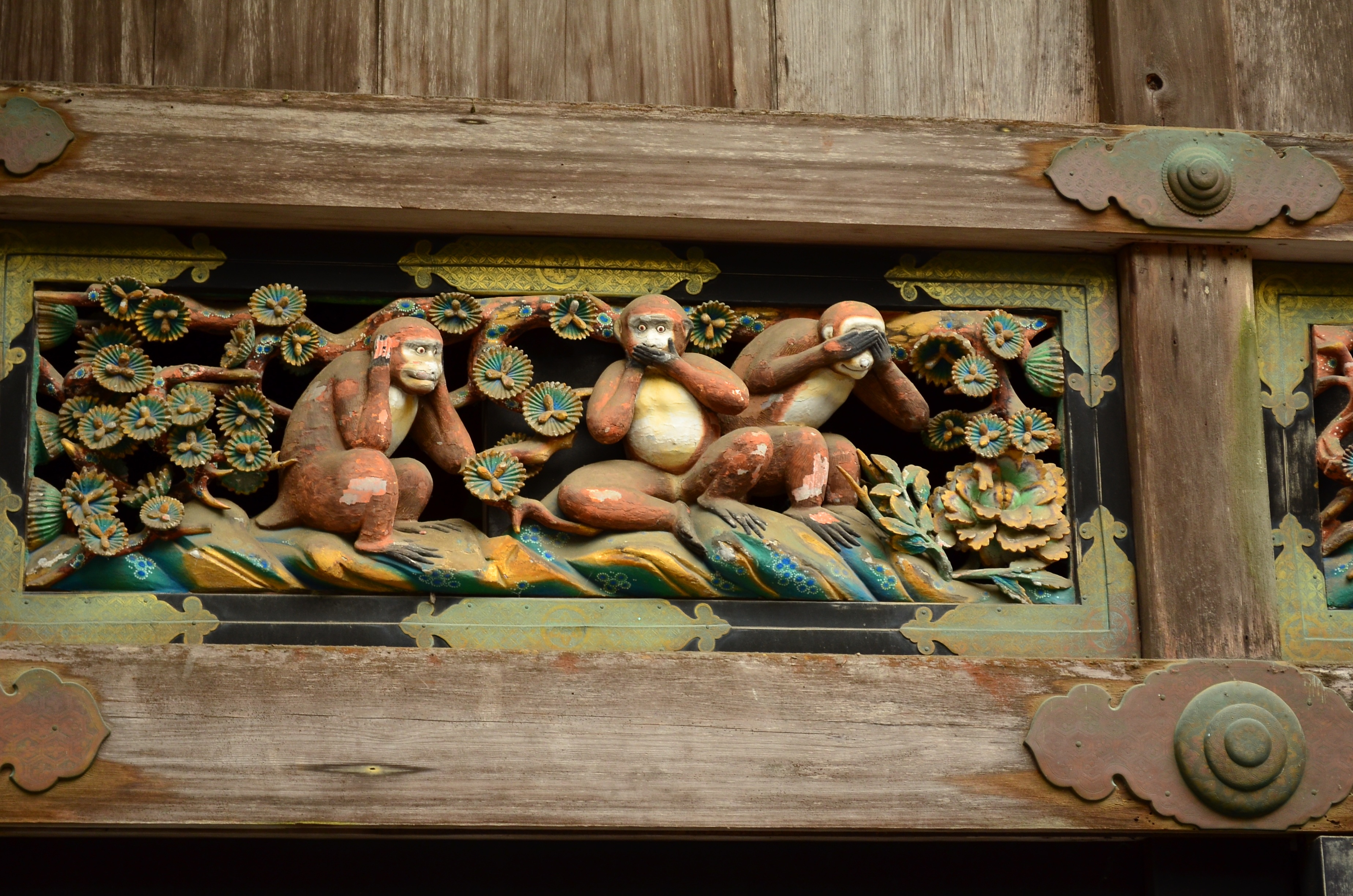FUCT again! The United States v. Offensive Speech
January 17, 2019
It seems I overstepped nineteen months ago in claiming that in a unanimous ruling involving disparaging trademarks, “the Supreme Court, presumably once and for all, has green lighted offensive speech.”
In Matal v. Tam, you may recall, the Court struck down a law that banned registration of trademarks that disparage people, institutions, beliefs, or national symbols. The Disparagement Clause was a portion of Section 2(a) of the Lanham Act, the federal trademark statute.
But Tam may not mean that anything goes. The Scandalous Clause, a related but distinct part of § 2(a), bars “immoral” or “scandalous” marks, arguably a separate kind of offensiveness, from being registered. In saying that the Court put the kibosh on government disapproval of “offensive speech,” apparently I spoke too broadly. Or so says the Solicitor General of the United States, who is appealing a ruling of the U.S. Court of Appeals for the Federal Circuit that in late 2017 struck down the Scandalous Clause. About ten days ago the High Court agreed to hear the case, Iancu v. Brunetti, and will likely render a judgment before the end of its current term in June. (See the government’s cert petition brief here; the respondent’s here.)
Since 1990, Erik Brunetti has marketed a line of clothing under the name “FUCT.” In 2011 he sought federal trademark registration, but the Trademark Office (technically the U.S. Patent and Trademark Office, hence USPTO or, here, PTO) turned him down on the obvious ground that the made-up word is the equivalent of the past tense of the dreaded “F-word” (useful as a noun or verb or, suitably modified, as an adjective or adverb—indeed, what can’t it be used for? F–me, even as an interjection!). And that word and its variants are common vulgarities that by definition are immoral and therefore scandalous.
The Federal Circuit, which among other things hears appeals in patent and trademark cases, agreed with the government that Brunetti’s trademark is scandalous under the Lanham Act because it is a common vulgarity of precisely the sort Congress was seeking to keep off the trademark registry.
Here’s how the courts have generally reasoned in this arena. First, although the law speaks of two categories, “immoral” and “scandalous,” the PTO and the courts have always treated the two as meaning the same thing. Second, a trademark is scandalous if it is “shocking to the sense of truth, decency, or propriety; disgraceful; offensive; disreputable” or if it “give[s] offense to the conscience or moral feelings . . . or call[s] out for condemnation.” The legal term includes “vulgar marks, i.e., those lacking in taste, indelicate, [and] morally crude.” Third, a mark fitting the bill will be denied registration if a “substantial composite of the general public would find the mark scandalous.”
Brunetti objected that his word was not really any of those things. After all, it’s a made up word. No matter, said the Circuit Court, agreeing with an appeals board within the PTO that the word is a “phonetic twin” of the common vulgarity. Brunetti offered several other arguments, all of which, said the court, are meritless (mainly because they “stretch credulity”—meaning, they’re laughable).
Brunetti should have conceded the point. It would have been a lot more direct to say: “Yeah, of course it’s vulgar. But I have a First Amendment right to be vulgar.” That happens to be an argument the Federal Circuit buys. The court held that in blocking registration of a vulgarity, the Scandalous Clause is unconstitutional.
Now if we ask the lawyers and judges to step out of the room for a moment, you might suppose that unconstitutionality obviously follows from Matal v. Tam. After all, what is offensive under the Disparagement Clause is also, almost automatically, offensive under the Scandalous Clause.
Think about it this way: disparaging words, of the sort likely to be frowned on by the PTO, are no less scandalous than vulgar words of a sexual variety. Pick any garden-variety disparaging slur. Pop it into the formula above. Wouldn’t it be “shocking to the sense of . . . decency”? Wouldn’t it be “disgraceful”? Certainly “offensive.” It would downright “give offense to . . . moral feelings.” In this day when even Republicans condemn their Iowa pal Rep. Steve King for his racial and other insensitivities, wouldn’t most of us suppose that a racial or ethnic or related sort of slur would “call out for condemnation”? And by a “substantial composite of the general public”?
It would be tomfoolery to think that the Supreme Court would order the PTO to register a disparaging mark only to conclude that, well, under the Scandalous Clause, within the same Section 2(a) and just a line or two away from the now voided Disparagement Clause, the PTO may refuse to register it after all. That’s sort of like an allergist telling you it’s okay to eat the mushroom, since tests show you’re not allergic to it, but forgetting to tell you, while you’re in the exam room, that it’s otherwise poisonous.
We can reach a conclusion this fast, however, only if we ignore the lawyers. And shucks, we can’t ignore them.
To make it quick, though, I can omit the more recondite points. The Federal Circuit ruled, in essence, that Brunetti is entitled to trademark his vulgarity because the Scandalous Clause is a “content-based restriction on speech,” a legal difficulty the government can only rarely overcome under the First Amendment.
A year ago, the government conceded that the Scandalous Clause is neither content neutral nor survivable under the usual strict scrutiny test. But that didn’t stop the government lawyers, who argued that because this is a case about trademarks, the First Amendment doesn’t actually apply. What’s really going on, the Justice Department lawyers insisted, is something quite different. This is a government subsidy case. The government is subsidizing Brunetti’s speech by giving him the benefit of a trademark. And the government is permitted to determine which kind of speech to subsidize and which not.
The Federal Circuit straightforwardly dispatched that argument. A trademark is not a subsidy, the judges answered. The applicant does not receive federal funds, as some farmers, hospitals, schools, or research labs do under well established subsidy programs. Of course it costs money to operate the trademark system, but if money spent on a government program or operation is a subsidy, then every government activity would be a subsidy, if only because the government pays salaries (unless of course, heaven forbid, the government is shut down). By that logic, Congress could restrict speech, or other First Amendment rights, when it provides police or fire protection in the District of Columbia—for example, by limiting protection to members of only one political party. It would mean that Congress could authorize the Copyright Office to refuse to copyright books that espouse views anathema to a majority of Congress. But no such policy has ever been imagined to be constitutional. Subsidy cases arise under the Constitution’s Spending Clause; Lanham Act (trademark) cases under the Commerce Clause. Wrong ballpark altogether.
The government lawyers also argued that the trademark law makes the “principal registry” of the Trademark Office (the listing of all registered trademarks) a “limited public forum,” where the government can dictate what is in or out. This argument, the appeals court ruled, is equally ludicrous. “Public forum” analysis governs speech in places the government owns or controls, like parks and sidewalks and libraries and theaters, not lists of items in a computerized database.
But what about the kids? Doesn’t the government have an interest in protecting children and other unsuspecting radio listeners from a barrage of vulgarities? Didn’t the Supreme Court say so back in 1978 in the notorious “seven dirty words” Pacifica case? Not really, and in any event, the Federal Circuit said, Pacifica is irrelevant. A trademark is not foisted upon listeners by virtue of its being registered. Nor does registration make a scandalous mark more accessible to children. Even without a federally-registered trademark, any seller is free to anoint its products with vulgar words and images no matter who sees them.
The argument boils down to a simple proposition, which the Supreme Court has affirmed time and again: “The fact that society may find speech offensive is not a sufficient reason for suppressing it.”
And if none of that impresses you, consider the airtight clincher: To survive First Amendment challenge, a content-based restriction must:
(1) directly advance the government’s interest. If you want to protect the public against vulgar usage, the Lanham Act isn’t doing the job, since, as just noted, anyone is free to use a vulgar trademark, even if the Trademark Office refuses to register it, and
(2) be consistently applied. But the principal trademark registry is chock-a-block full of vulgarities, including variants of the dreaded F-word (for example, FCUK has been registered).
All that said, here we go again. The Solicitor General has appealed, the Court has agreed to hear the case, and oral argument will likely be held this spring. This time around, the government argues that Matal v. Tam didn’t resolve the current issue because the justices split into two blocks of four justices each with different rationales. Besides, Justice Department lawyers urge, Section 2(a) of the Lanham Act “does not restrict the terms or images that may lawfully be used as trademarks.” In other words, even though federal registration is forbidden, the law does not prevent the disputed words from being used as non-registered trademarks. But the same was true in Tam. None of the justices supposed that argument could sustain the Disparagement Clause, which lived in the same statutory household as the Scandalous Clause. If you have to let one clause leave the house because the censors are coming for it, you have to let the other clause out too.
Constitutional parsing aside, consider what might happen if the Supreme Court went along with the Solicitor General. Just the other day I was reading For Whom the Bell Tolls, Ernest Hemingway’s classic novel about the Spanish Civil War, first published in 1940. Hemingway was forced to put into the mouths of angry Spanish revolutionaries a series of oaths like this one scattered throughout his pages: “I obscenity in your milk.” Squeamish publishers and postal censors wouldn’t let him write as his characters would have spoken.
We can hope (and expect) that the Honorable Chief Justice of the United States and Associate Justices of the Supreme Court will spare us a return of the prigs.
Your email will not be posted on the site if you make a comment.


